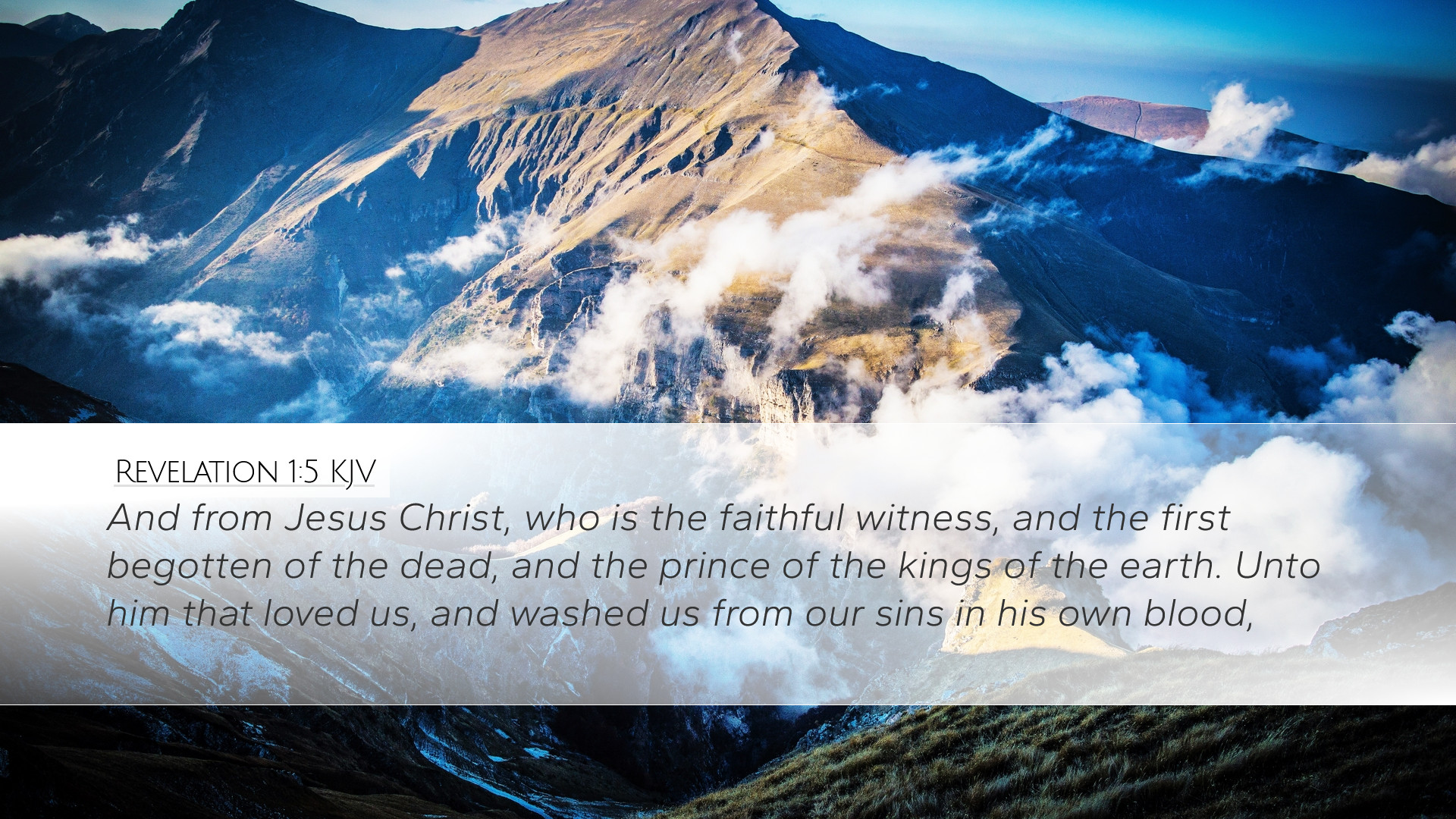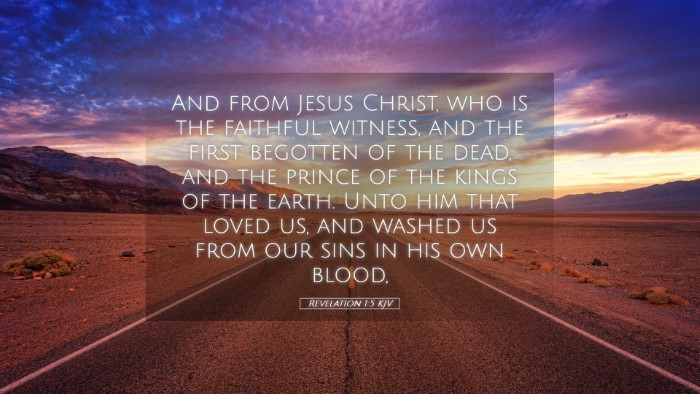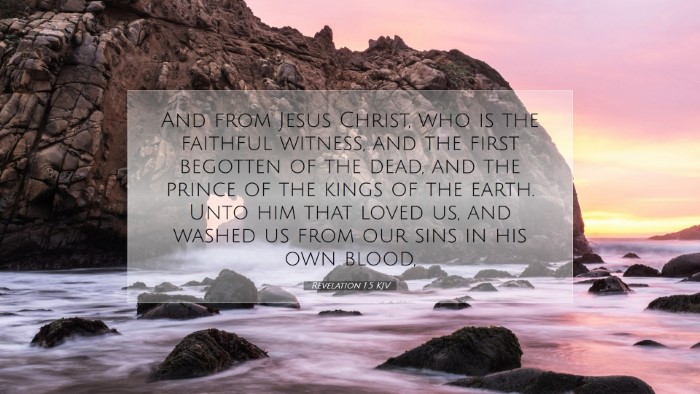Commentary on Revelation 1:5
Revelation 1:5 states, "And from Jesus Christ, the faithful witness, the firstborn of the dead, and the ruler of kings on earth. To him who loves us and has freed us from our sins by his blood."
Overview
This verse serves as an introduction to the themes of the Book of Revelation, emphasizing the authority, nature, and redemptive work of Jesus Christ. The use of titles and descriptions highlights His essential characteristics, which provide comfort and assurance to believers facing persecution and hardship.
Key Themes
- Faithful Witness: The reliability of Christ's testimony.
- Firstborn of the Dead: The significance of His resurrection.
- Ruler of Kings: His sovereignty over all nations.
- Love and Redemption: The implications of His sacrifice.
Faithful Witness
Matthew Henry, in his commentary, emphasizes that Jesus as the "faithful witness" signifies His unwavering truth in the testament of God's will and character. This title assures believers of His reliability, especially in times of uncertainty. The faithfulness of Christ serves not only as a model for personal conduct but also reassures Christians of the authenticity of the revelation given to them.
Firstborn of the Dead
Albert Barnes elaborates on the title "firstborn of the dead," indicating that Christ's resurrection marks Him as the foremost among those who will be resurrected. This is not just about precedence in time, but it highlights His unique and divine nature in overcoming death. The resurrection of Christ guarantees the future resurrection of believers, hence instilling hope and anticipation for eternal life.
Ruler of Kings
Adam Clarke comments on the phrase "ruler of kings on earth," focusing on Christ’s supreme authority over earthly powers. This declaration positions Jesus not merely as a spiritual leader but as sovereign over all governance. The acknowledgment of His kingship serves as a powerful reminder that no earthly ruler possesses ultimate authority outside of His dominion, encouraging believers to remain steadfast in their faith despite societal challenges.
Love and Redemption
The latter part of the verse, "To him who loves us and has freed us from our sins by his blood," encapsulates the essence of the Gospel message. Matthew Henry reflects on the transformative nature of Christ’s love and His sacrificial work on the cross. This act of love is both a personal and corporate blessing for the Church—it delivers believers from the bondage of sin and enables a restored relationship with God. The mention of His blood underscores the gravity and significance of atonement in Christian theology.
Theological Implications
The implications of this verse are profound for the life of a believer and for ecclesiastical theology. Jesus’ identity as the faithful witness provides the foundational truth for Christian doctrine, inspiring a commitment to truthfulness in life and ministry. His resurrection affirms the hope of life after death, encouraging an eschatological hope that looks forward to the fulfillment of God's promises. Moreover, recognizing Him as the ruler calls believers to submit to His lordship, leading to a life that reflects His values and teachings.
Historical Context
Understanding the context in which John was writing is essential. The early Christian community faced persecution and challenges from the Roman Empire, which often demanded allegiance to its rulers. Revelatory visions provided by Christ were crucial in affirming His ultimate authority and plan for redemption. This verse sets the tone for the entire book of Revelation, inviting believers to endure through the trials and to remain hopeful in the face of adversity.
Conclusion
Revelation 1:5 encapsulates the central tenets of the Christian faith—the witness, authority, and love of Christ. It encourages believers to cling to the truth and the hope found in Jesus, setting the stage for the profound revelations that follow in the text. For pastors, students, theologians, and scholars, this verse serves as a reminder of the multidimensional aspects of Christ’s nature and mission, leading to a deeper love and understanding of the Savior who writes our story of redemption and hope.


